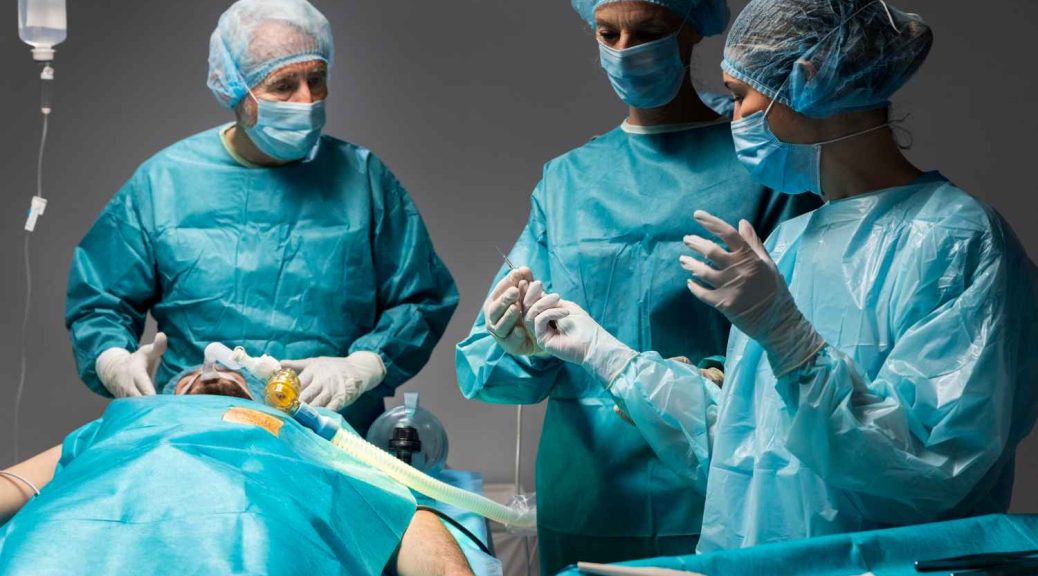
How Long Does It Take to Recover from Gallbladder Stone Surgery?
The gallbladder is a small, pear-shaped organ located just beneath the liver in your upper right abdomen. Its main function is to store and concentrate bile, a yellowish-green fluid produced by the liver. Bile helps break down fats in the small intestine during digestion .
People look for the best hospital to get the best healthcare service & suggestions. On this note, if you are living in Tripura or Bangladesh, and want to get the best gallbladder surgery treatment at the nearest location, you can reach out to ILS Hospital, Agartala. For gallbladder stone surgery in Agartala, ILS Hospital is the best hospital in Agartala where you will get world class treatment and care.
What is Gallbladder Stone Surgery?
Gallbladder removal, also known as cholecystectomy, is a surgical procedure undertaken through one of two primary methods:
- Laparoscopic surgery: This is the more common approach, where a surgeon utilizes a slender tube equipped with a light and a miniature camera (laparoscope) to visualize the body’s interior. Several small incisions are made, using the laparoscope and specialized tools to conduct the surgery.
- Open surgery: Reserved for cases where laparoscopic surgery isn’t feasible, typically due to severe infection or scarring of the gallbladder and bile ducts, obesity, advanced gallbladder disease, or pregnancy in the final trimester. In this method, a larger incision is made in the abdominal region to access and remove the gallbladder directly. Both procedures are carried out under general anesthesia.
Why is Gallbladder Removal Surgery Performed?
This is the most common question that people have asked. Why is gallbladder removal surgery performed? The answer is to remove gallstone that builds in the gallbladder.
The primary reason for undergoing gallbladder removal surgery is to address the presence of gallstones within the gallbladder. While gallstones may not always cause immediate issues, surgery becomes necessary if a stone obstructs a bile duct, causing a painful “gallbladder attack” characterized by intense abdominal pain lasting for several hours. For this situation, you can visit ILS Hospital for best emergency hospital in Agartala.
Gallstones typically don’t disappear without intervention. While medications can be attempted initially, they often take a significant amount of time, ranging from months to years, to dissolve the stones, and recurrence of gallstones is common.
In certain instances, gallstones may obstruct bile ducts, leading to symptoms such as pain, inflammation, nausea, and vomiting. Severe complications can arise, including jaundice (yellowing of the skin and eyes), gallbladder infection, cholecystitis (inflammation of the gallbladder), cholangitis (inflammation of the bile ducts), gallbladder tears (potentially fatal), and pancreatitis.
How Long Take to Recover from Gallbladder Surgery?
The recovery process varies depending on whether laparoscopic or open surgery is undertaken.
For laparoscopic surgery, patients often discharged the same day or require an overnight stay. Rest is recommended, with avoidance of strenuous activities like sports, heavy lifting, and swimming for at least a week. Typically, patients can return to their routine within two weeks.
In the case of open surgery, hospitalization typically lasts 1 to 2 days. After discharge, patients are advised to refrain from sports, heavy lifting, and swimming for several weeks. Complete recovery may take 6 to 8 weeks.
Gallbladder Stone Surgery: The Risk Factor
Gallbladder stone surgery, while often necessary to alleviate symptoms and prevent complications, carries inherent risks like any surgical procedure. Among the primary risks associated with gallbladder stone surgery are anesthesia complications, infection, bleeding, injury to nearby organs or structures, and bile duct injury.
Anesthesia complications may include adverse reactions or respiratory issues, especially in patients with preexisting conditions. Infections can occur at the surgical site or internally, leading to complications such as abscess formation. Bleeding during or after surgery is a potential risk, especially in patients on blood-thinning medications or with clotting disorders.
Injury to nearby organs, such as the bile duct, liver, or intestines, can occur during surgery, leading to additional surgical interventions or long-term complications. Bile duct injuries, in particular, can result in bile leakage, infection, or obstruction, necessitating further treatment.
Furthermore, postoperative complications such as blood clots, pneumonia, or gastrointestinal issues may arise, prolonging recovery and potentially requiring additional medical attention.
Final Words
With advancements in surgical techniques and perioperative care, the procedure has become safer and more effective, offering relief from debilitating symptoms and preventing potentially serious complications.
However, it’s imperative for patients to understand the risks, benefits, and alternatives, and to engage in thorough discussions with their surgeon. With proper preoperative evaluation, careful surgical planning, and proper postoperative care, gallbladder stone surgery can significantly enhance quality of life and promote long-term well-being for individuals facing gallstone-related challenges.
Frequently Asked Questions(FAQs):-
Here we have answered some of the most frequently asked questions about gallbladder surgery. Please take a look at the below part to know more about it.
Q1. Is Gallbladder Stone A Major Surgery?
Yes, gallbladder stone surgery, whether performed laparoscopically or through open surgery, is considered a major medical procedure due to its complexity and potential risks.
Q2. Why 4 Holes For Gallbladder Surgery?
Four holes are typically used in laparoscopic gallbladder surgery to accommodate instruments, provide optimal visualization, and minimize postoperative discomfort and scarring.
Q3. How Long Is Bed Rest After Gallbladder Surgery?
It depends on the patients and their conditions. However, it can be said that it takes 2 weeks to get bed rest after gallbladder surgery.










